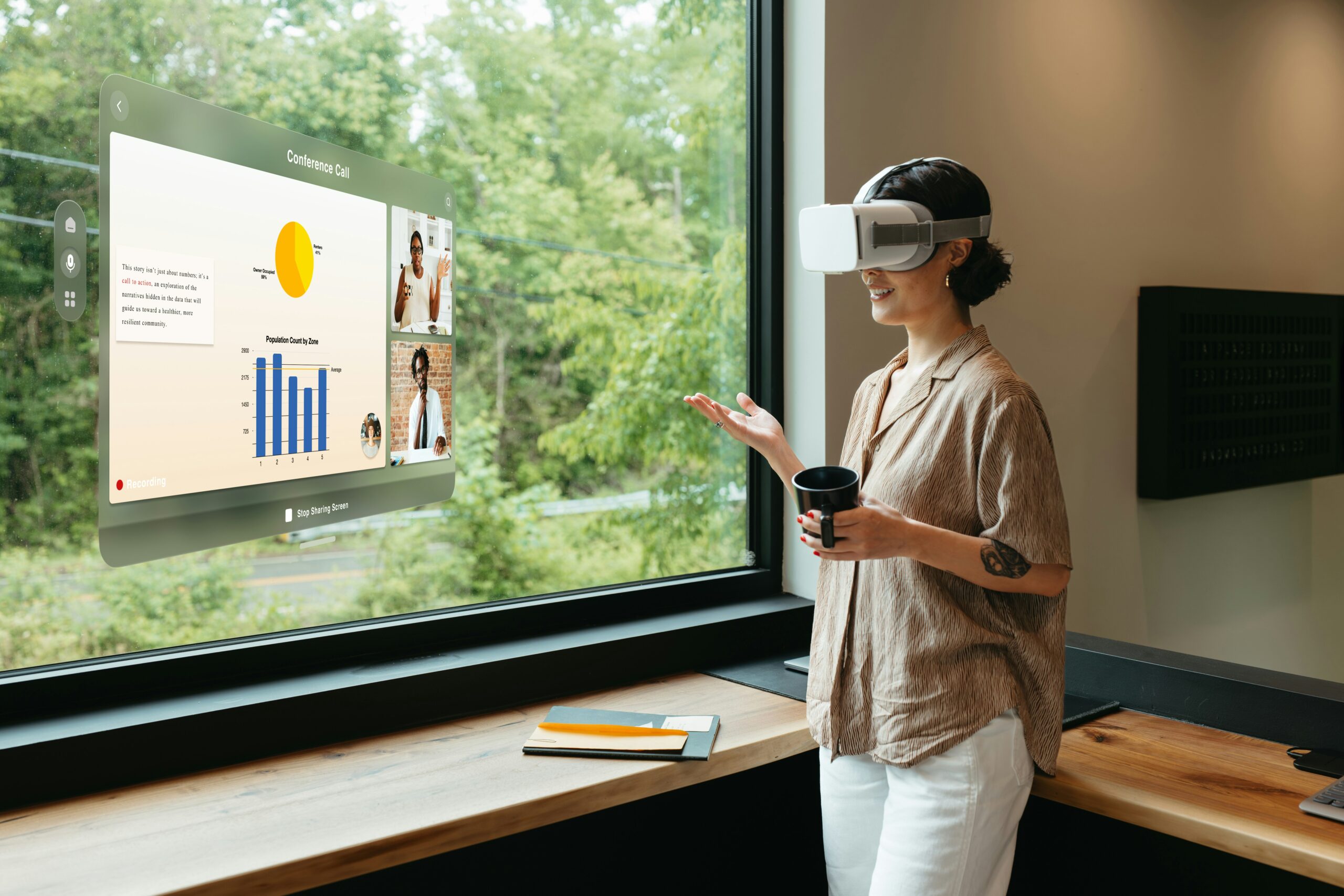
Technology continues to reshape the way people live, connect, and heal. One of the most exciting breakthroughs in recent years is the growing role of virtual reality (VR) in mental health and wellness. Once considered futuristic, VR now offers accessible and practical solutions for therapy, stress relief, and emotional well-being. This immersive technology allows individuals to enter controlled environments that support relaxation, exposure therapy, and even mindfulness practices.
In this article, we explore how virtual reality mental health applications are changing the way people manage anxiety, depression, stress, and overall wellness.
Understanding the Link Between Virtual Reality and Mental Health
Virtual reality creates a computer-generated environment where users interact in real time. Unlike traditional therapy, VR enables individuals to safely confront challenging situations or practice calming exercises in a virtual environment. This immersive experience activates the senses and engages the brain in ways that feel realistic, making therapeutic sessions more impactful.
The rise of VR in psychology stems from the need for more engaging treatment methods. Studies show that virtual simulations can reduce stress, ease anxiety, and even rewire thought patterns. As a result, therapists and wellness experts increasingly integrate VR into mental health programs.
How VR Therapy Benefits Mental Wellness
Reducing Anxiety and Stress
One of the most common applications of VR is stress reduction. Through guided experiences, users can enter serene environments such as beaches, forests, or mountains. These calming scenarios promote mindfulness, deep breathing, and relaxation. Unlike traditional meditation apps, VR immerses users fully, making it easier to block out distractions.
Supporting Exposure Therapy
For individuals with phobias or post-traumatic stress disorder (PTSD), exposure therapy plays a key role in healing. However, confronting real-life triggers can feel overwhelming. VR provides a safe and controlled way to face fears gradually. For example, a person with a fear of flying can practice takeoff and landing scenarios without ever boarding a plane.
Managing Depression
VR can help combat depression by encouraging positive engagement. Interactive experiences enable individuals to engage in virtual social activities or wellness exercises, potentially enhancing their mood and motivation. Researchers also note that VR fosters a sense of presence, making therapeutic interactions more personal and practical.
Encouraging Mindfulness and Meditation
Mindfulness has been shown to have mental health benefits, including improved focus and reduced emotional reactivity. Virtual reality enhances these practices by placing users in immersive environments designed for meditation. Instead of sitting in a quiet room, users can virtually sit by a flowing river or under a starry sky, amplifying the calming effect.
Real-World Applications of VR in Mental Health
Clinical Therapy Settings
Hospitals and clinics are now incorporating VR into their treatment plans. Psychologists employ VR to support patients with PTSD, phobias, and chronic pain. Because the experience is controlled, therapists can tailor sessions to meet each patient’s specific needs.
Corporate Wellness Programs
Companies increasingly recognize the importance of employee wellness. Some organizations utilize VR-based relaxation breaks to reduce workplace stress and enhance productivity. Employees can spend a short time in a peaceful virtual space to reset their minds.
At-Home Wellness Tools
Affordable VR headsets enable individuals to practice mental wellness from the comfort of their own homes. Apps designed for relaxation, guided meditation, or cognitive-behavioral therapy make mental health resources more accessible than ever.
The Science Behind Virtual Reality Mental Health Benefits
Research highlights the neurological effects of VR therapy. Immersive environments engage the brain’s sensory and emotional centers, which helps create lasting behavioral changes.
Reduced cortisol levels show how VR relaxation lowers stress hormones, improving overall health.
Neuroplasticity research suggests that repeated VR therapy sessions encourage the development of new thought patterns and healthier responses.
Enhanced focus is another benefit, as VR reduces external distractions, making therapy sessions more effective.
These scientific findings show that VR does more than entertain—it offers measurable improvements in mental health.
Challenges and Considerations
While VR therapy holds promise, it also comes with challenges. Not all patients may adapt well to technology, and some could experience motion sickness. Costs can also limit accessibility, although prices for headsets and apps continue to drop. Furthermore, therapists must strike a balance between the use of VR and traditional methods, ensuring a comprehensive approach to care.
Another concern is the risk of overreliance on virtual experiences. While VR can be helpful, it should complement—not replace—real-world coping skills and social interactions.
The Future of Virtual Reality and Mental Health
The future looks promising for virtual reality mental health solutions. As technology advances, VR experiences will become more realistic, personalized, and widely available. Developers are working on an AI-powered VR therapy that adapts to a patient’s mood and progress in real-time.
Additionally, the growing acceptance of telehealth opens doors for remote VR therapy sessions. This evolution may make professional mental health support more accessible worldwide, reducing barriers caused by distance or stigma.
Tips for Using VR to Support Wellness
Start small by trying short relaxation or meditation sessions to build comfort. Choose trusted applications developed by mental health professionals or reputable organizations. Balance VR with real-world wellness activities such as exercise, social interaction, and therapy. Set clear goals for each VR session, whether reducing anxiety, improving focus, or enhancing mindfulness. If using VR as part of a therapeutic plan, consulting a mental health expert ensures safe and effective results.
The relationship between virtual reality and mental health practices, as well as their impact on wellness, continues to grow stronger. VR empowers individuals to manage stress, face fears, and embrace mindfulness in ways that traditional therapy sometimes cannot. While challenges remain, the benefits of immersive therapy show enormous potential for transforming mental health care. As technology advances, VR is likely to become a key tool in global wellness efforts, helping people lead calmer, healthier, and more connected lives.